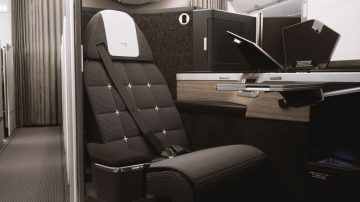
A new report by Amex GBT says the business travel sector will play a central role in new ways of working that will benefit employees.
If I asked you what critical functions drive company culture, most of you would perhaps mention leadership, an inspiring vision, recruitment of relevant and diverse talent and the promotion of inclusivity and equity.
Dare I say it, very few of you would include business travel, but the case for this thesis is exactly what American Express Global Business Travel (Amex GBT) laid out in its recent white paper entitled, ‘Why business travel is the centre of the new company culture’. Among the many bold claims in the paper, it states that far from being an irresponsible indulgence of yesteryear, the business travel sector is now “positioned to play a central role in enabling organisations’ recovery and success”. This will be music to the ears of travel suppliers and inspiring for travel buyers, but does this claim stand up to scrutiny in a world of increased focus on cost and sustainability?
Hybrid working
The central premise of the Amex GBT white paper is that, as a large majority of us adopt hybrid work arrangements and commuting into the office every day continues to be occasional, business travel will play an increasingly important part in meeting critical cultural demands in the areas of company culture, worker wellbeing, professional development, employee empowerment and corporate values.
According to the paper, more than one-third of executives say that preserving company culture is their biggest work concern when allowing their teams to work from home and 81 per cent of business travellers “cite the irreplaceable value of in-person meetings”. The importance of bringing people together supports the argument for increased internal off-sites and retreats, regarded as “vital moments to spark motivation, engagement, and a sense of unity”. This is a trend seen most in the tech sector where companies such as Salesforce have already built a retreat house to accommodate such events. These kind of ‘must have’ trips are also considered to promote a good work-life balance. In addition, they support employee wellbeing and personal development at a time when digital nomadism, blended ‘bleisure’ trips, four-day work weeks and sabbaticals are increasingly on offer.
Employee empowerment
Most interesting are the claims in the white paper around how the make-up of a business travel programme can be used to support corporate values in a world where they will be decreasingly on display in the traditional office environment. In line with the well-established view that millennial employees increasingly yearn for more flexibility, a more liberal travel policy can bestow greater autonomy when it comes to work trip planning, booking and monitoring, and such policies demonstrate a corporate culture of employee empowerment.
Regenerative travel
Finally, and most encouragingly, for those suppliers offering added value or more sustainable, diverse and inclusive credentials, the choice of vendors in a travel programme can also reflect the values of a company in a compelling way. As Amex GBT puts it, “by adopting policies and programs that reflect slower, more inclusive and regenerative travel, organisations can do more than demonstrate social responsibility; they can create additive benef
But where does all this leave travel procurement and the role of a travel buyer? The white paper describes travel managers as “the new custodians of corporate culture” and says that in future, these managers will need to be referred to as ‘chief journey officers’ to reimagine the role.
I suspect such rebranding may be a couple of steps too far, but all of this does turn on its head the notion that business travel is a pre-pandemic ‘boomer’ extravagance that should be consigned to history like the daily commute or terrestrial TV. Volumes of traditional business travel may fail to rebound, but new kinds of ‘meetings’ seem sure to emerge and travel suppliers – whatever job title we may give them in future – would be well advised to take note.
Richard Tams is an airline consultant and executive coach












